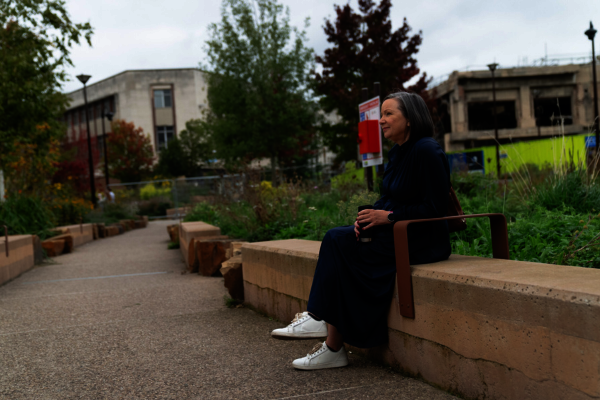How will today’s spending announcement impact the country’s 50+ population?

Chancellor Rachel Reeves has unveiled the contents of the UK's first multi-year spending review since 2021.
The review sets the day-to-day budgets of government departments over the next three years, used to pay staff and deliver public services.
Among the announcements in today’s Spending Review that are most relevant to the agenda of the Centre for Ageing Better, the Chancellor announced that £39 billion would be allocated for social housing in England between 2026 and 2036 – a substantial increase on the £2.3 billion a year currently.
The Chancellor also confirmed that the government would stick to its election manifesto funding pledges for the Warm Homes Plan which would see more than £13 billion spent insulating an extra 5 million homes across the UK during the parliament.
The Spending Review also confirmed that more than £15 billion will be allocated between 2027 and 2031 for transport projects in English city regions outside London.
The Chancellor also confirmed that the £3 cap on single bus fares in England would now be extended until March 2027.
Additional funding was also announced to support up to 350 communities to improve parks, youth facilities, swimming pools and libraries, supporting councils’ fightback against graffiti and fly-tipping with a priority for the most deprived areas of the country.
Responding to a range of points raised by the Spending Review announcement, Dr Carole Easton OBE, Chief Executive at the Centre for Ageing Better, said:
On long-term planning in government
“It is welcome to see the government commit to long-term planning through the spending review alongside the upcoming ten year plans for health, housing and infrastructure and multi-year funding settlements for local authorities.
“Too much of politics is determined by short-termism and headline-grabbing when it is a long-term vision which is needed to overturn the huge inequalities within our society.
“The growth in our ageing population is one of the great challenges and opportunities that will determine our country’s future, yet the issue is too often pushed into the long grass to be resolved another day.
“The next step in the government’s future planning should be an ageing society strategy to balance the current needs of older people with the long-term implications of our ageing population.
“Establishing a Commissioner for Older People and Ageing would help guide that process and ensure that planning for our ageing population is at the forefront of all government department’s thinking.
On the Warm Homes Plan
“We are pleased that the government has committed to its manifesto promise with the Warm Homes Plan.
“Such is the scale of the UK’s poor-quality housing crisis, the level of investment Labour indicated before the election for the Warm Homes Plan is the bare minimum we need to ensure that the scourge of poor housing that is harming the health of this country is limited.
“By investing in improving the quality of our homes, the government should need to spend less in the future on the sticking plaster solution of winter fuel payments.”
On affordable homes funding
"The Chancellor should be commended for committing to the biggest boost to social and affordable housing investment in 50 years.
"But it will be money down the drain if we then build homes which are not accessible, energy efficient and of good quality that lasts.
“As Rachel Reeves said herself, people need the security of a proper home.
"A house that does not allow its occupants to remain living there independently, healthily and happily as they grow older is not a home, it is just a meaningless statistic.
On restoring community pride
“We welcome the Chancellor’s recognition of the importance of people’s pride in their communities and the need for renewal. The announcement of additional funding to improve public spaces and facilities in 350 communities is a good step towards renewing that pride.
“If we want to create age-friendly communities where we can all age in good health and independently, then we desperately need key services like leisure centres, libraries, green space, good quality public transport, and walkable streets.
On tackling economic inactivity
“The Spending Review reconfirms the government’s ambition to reduce long-term economic inactivity and to provide better support for Disabled workers and jobseekers.
“Workers in their 50s and 60s make up the bulk of both these groups. So while the commitment is welcome, the government needs to make sure that its ambitious employment support reforms actually work for people over 50: by setting high performance targets for this group, and actively evaluating the impact they are having.
“The UK is one of the worst countries in Europe for jobseekers with long-term health conditions, and particularly so if you are in your 50s or 60s.
“The tough talking, stick-based approach of the past decade has only served to widen this gap and reduce prospects.
“People’s working lives and the transition to retirement has completely changed. We now have huge numbers of people working years past state pension age and we have even larger numbers of people locked out of the labour market well before state pension age.
“The way employment support works in this country needs to change to reflect this. The government should carry out a holistic review of how DWP interacts with people in their 60s.”
